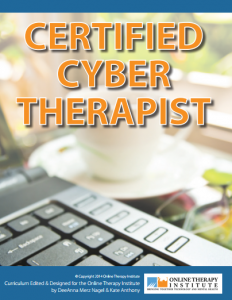 Online therapy and coaching is becoming quite popular so it is not surprising that more and more people will be seeking out services from coaches, therapists and other helpers online.
Online therapy and coaching is becoming quite popular so it is not surprising that more and more people will be seeking out services from coaches, therapists and other helpers online.
We have all heard the phrase, Buyer Beware and this could not be more true when we talk about accessing services from a helping professional on the Internet. So what should you look for and what should you beware before you buy….? Practitioner websites should boost your confidence level by offering information you need.
Here are some simple pointers that should be evident on the practitioner’s website:
First, is the person qualified for the service you are seeking?
For instance, if the person is a mental health professional, is he/she qualified to conduct counseling or psychotherapy? In the U.S. mental health professionals must hold a state license or be in supervision while they seek licensure. While this may not be the case across the globe, in general, most mental health professionals should demonstrate a level of training that meets the requirements of their jurisdiction.
If you are seeking coaching services, is the coach certified? The coaching profession is not regulated but it is always a good idea to seek services from a coach professional who has taken the time to become certified within their chosen field.
If you are seeking other alternative healing services, has the person sought out any additional training or certification that would demonstrate a commitment to his or her profession?
Second, is the person qualified to conduct services via distance?
While a person may be qualified to conduct services in-person, and may have years of experience doing so, that does not translate to being able to conduct those same services online. For example, conducting counseling or coaching via videoconferencing is very different than talking to friends or family via Skype. One reason is that Skype is not secure enough for sessions that involve very personal information. Be sure that the practitioner has had training related to distance services so that you can rest more easily about issues related to confidentiality and privacy.
Third, does the practitioner state how your private information is stored?
Being sure your sessions are conducted using secure and encrypted methods is very important. The practitioner should explain how the services will take place and what type of security measures are being taken,
Fourth, does the practitioner have a contract or an informed consent document posted on the website that you can review?
When you enter into services with a helping professional, you should be asked to sign or acknowledge a contract or agreement that ensures your rights and your privacy. The contract will generally inform you as to how services will take place and give you information about contacting between sessions, appointment changes or cancellations and other details of the work the two of you will be entering into together.
Finally, does the person make available redress procedures and a formal mailing address and contact information?
Why is this important? Practitioners will usually reveal professional affiliations or information regarding the license or certifiying bodies. You need to know how to proceed should there be a contract breach and at the very least, you should have an address so that you can contact the practitioner via post if necessary.
Mostly, remember that it is up to the practitioner to make it obvious to you that he/she is qualified for the services you seek!
The Internet and communication technology has changed our lives in so many ways. This is but one more way we can benefit if used wisely!
,


